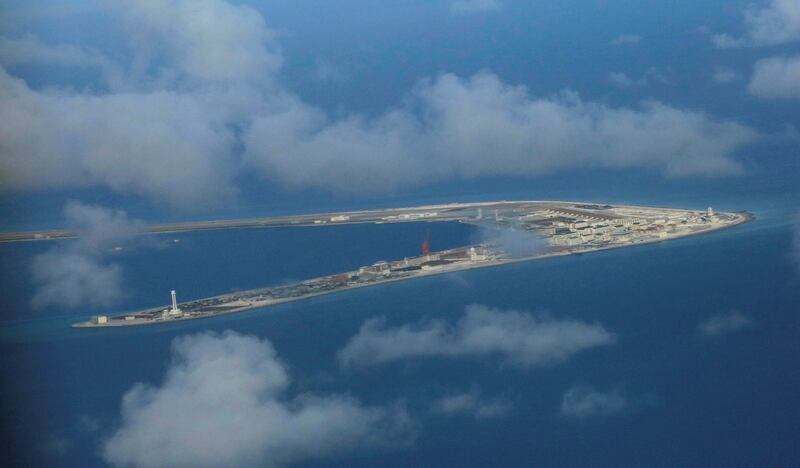Vietnam marks the 35th anniversary of the Johnson South skirmish in the South China Sea this week with a series of commemorations indicating an apparent shift in the domestic approach to the historical event.
In the short but bloody battle that took place at the uninhabited Johnson South Reef in the Union Banks on March 14, 1988, Chinese Navy troops backed by three warships shot dead 64 Vietnamese soldiers, who were attempting to land and raise a flag to claim control over the reef.
They also sank two Vietnamese transport ships and captured nine soldiers.
Ten days later, China occupied another feature in the South China Sea – Subi Reef – and by the end of 1988, it took possession of six atolls and rocks within the Spratly archipelago.
Reclamation works were carried out on all of them and three larger features – Subi Reef, Mischief Reef and Fiery Cross Reef – have been fully militarized with missile arsenals, radar systems and other military facilities, according to the U.S. Navy.

Every year since 1988, the Vietnamese public have been holding ceremonies to honor the fallen soldiers, for a long time without the government’s sanction as Hanoi was careful not to fuel anti-China sentiment among the population and offend its big neighbor.
Several public rallies to mark the Johnson South skirmish in the past were dispersed by the authorities who didn’t want the crowds to get out of hand.
Recently though there have been noticeable changes.
‘Heinous crime’
China’s and Vietnam’s official accounts differ over what happened on March 14, 1988.
According to Chinese naval troops, the Vietnamese side attacked them after a dispute but Vietnam said the Chinese Navy opened fire first at unarmed Vietnamese soldiers.
Vietnamese media, which for years omitted the word “China” in their reports on the event, now have begun using more confrontational language.
VietnamNet, one of the largest news portals, in an editorial on Sunday called China’s actions in 1988 “perverse and a gross violation of international law.”
On the same day, a large commemoration was held in Danang, one of Vietnam’s key seaports.
The official Voice of Vietnam also dedicated a prominent page on its website to the anniversary.
“We should be sober and memorize this heinous crime that China committed against Vietnamese martyrs,” Nguyen Dinh Bin, former standing deputy foreign minister, wrote on Facebook.
“We should strive to develop the relationship with China into one of peace, cooperation and mutual respect,” Bin wrote, pointing that these “most important bilateral relations for Vietnam should conform to the international law as well as the norms of modern civilization.”

Government and military officials however have warned about the need to keep a “cool head” and not let sentiments take over strategic calculations.
“We need to stay clear-headed and rational in our dealings with China,” said a senior Vietnamese naval officer who wanted to stay anonymous as he’s not authorized to speak to foreign media.
“The target is a Code of Conduct (COC) in the South China Sea,” he told Radio Free Asia (RFA, a news service affiliated with BenarNews. “It is still a long way for us to achieve.”
Diplomats from the Southeast Asian bloc ASEAN and China held a three-day meeting in Jakarta last week to discuss the COC.
China and four ASEAN countries – Brunei, Malaysia, the Philippines and Vietnam – hold overlapping claims in the South China Sea but Beijing’s claim is by far the largest.
A legally binding COC may help reduce tension and prevent conflicts in the region.
